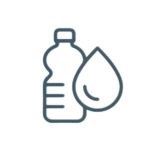Accountability and creators responsibilities are often overlooked when a new blog is created or a YouTube channel is started. But if you plan on playing the long game, knowing, and following the rules will be your best survival tool.
Content creators indeed have various levels of accountability, and it goes beyond just their families and clients. Here are some additional ways and stakeholders to whom content creators may be accountable:
Audience/Viewers
Content creators are often directly accountable to their audience or viewers. This accountability revolves around delivering content that meets the expectations and interests of its audience. Creators may need to engage with their audience, respond to comments, and maintain a level of quality that keeps viewers coming back.
Platform or Network
If content creators use a specific platform (e.g., YouTube, Instagram, TikTok), they are accountable to adhere to that platform’s terms of service, guidelines, and community standards. Violations can result in content removal or account suspension.
Peers and Collaborators
Content creators who collaborate with others, whether fellow creators or professionals in related fields, are accountable for their commitments and contributions to collaborative projects. This includes meeting deadlines, providing input, and respecting the creative vision of the team.
Sponsors and Advertisers
When content creators work with sponsors or advertisers, they are accountable for fulfilling their contractual obligations. This might include showcasing a product or service in a certain way or reaching specific engagement metrics.
Regulatory Authorities
Depending on the nature of the content and jurisdiction, content creators may be accountable to regulatory authorities. This is especially true in industries like advertising and media, where there are rules governing content, disclosures, and endorsements.
Social Responsibility
Content creators may also be accountable for the impact of their content on society. This includes considering the ethical implications of their work, such as avoiding harmful stereotypes, promoting inclusivity, and addressing social issues responsibly.
Personal Ethics and Values
Content creators often have their own set of personal ethics and values, and they may feel accountable for upholding these principles in their work. This could involve avoiding content that conflicts with their beliefs or supporting causes they are passionate about.
Self-Accountability
Content creators should hold themselves accountable for their own growth and improvement. This involves setting goals, staying organized, and continuously learning and adapting to changes in the industry.
Financial Accountability
Content creators may need to manage their finances responsibly, including budgeting for projects, paying taxes, and ensuring they have a sustainable income stream to support themselves and their families.
Legal Obligations
Content creators are accountable for adhering to copyright and intellectual property laws. Using copyrighted material without permission can lead to legal consequences.
It’s essential for content creators to recognize and manage these various forms of accountability to maintain their reputation, build trust with their audience, and ensure their long-term success in a highly competitive and dynamic field.

Recommended Resources:
The Clutter Corner Podcast
Ask a House Cleaner Show
BPA Free Water Bottles with Pop Up Straw
Mini Trampoline for 90-second workouts
The Sentimental Person’s Guide to Decluttering
Decluttering at the Speed of Life: Winning Your Never-Ending Battle with Stuff
The Life-Changing Magic of Tidying Up: The Japanese Art of Decluttering and Organizing
Nobody Wants Your Sh*t: The Art of Decluttering Before You Die
Decluttering Workbook: The Essential Guide to Organize and Declutter Your Home and Life With Exercises and Checklists
Daily Progress
* As Amazon Associates, we earn on qualifying purchases. Assume all links are affiliate links. We have sponsors to pay for all our productions.
















